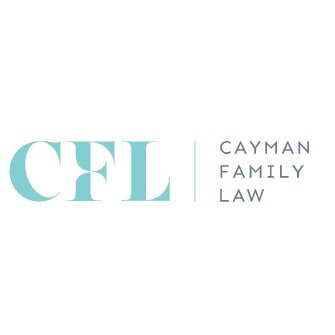Best Nursing Home Abuse Lawyers in Cayman Islands
Share your needs with us, get contacted by law firms.
Free. Takes 2 min.
Or refine your search by selecting a city:
List of the best lawyers in Cayman Islands
About Nursing Home Abuse Law in Cayman Islands:
Nursing home abuse in the Cayman Islands refers to any mistreatment or neglect of elderly residents in nursing homes or care facilities. This can include physical abuse, emotional abuse, financial exploitation, neglect, and more. The law in Cayman Islands takes nursing home abuse very seriously and provides legal avenues for victims to seek justice.
Why You May Need a Lawyer:
If you suspect that a loved one is a victim of nursing home abuse in the Cayman Islands, you may need a lawyer to help you navigate the legal process. A lawyer can assist you in gathering evidence, filing a complaint, and representing your interests in court. They can also help you understand your rights and options for seeking compensation for the harm caused.
Local Laws Overview:
In the Cayman Islands, nursing home abuse is governed by the Protection of Older Persons Law. This law provides protections and remedies for elderly individuals who have been subjected to abuse or neglect in nursing homes. It also outlines the responsibilities of nursing home staff and facilities to ensure the safety and well-being of residents.
Frequently Asked Questions:
1. What are the signs of nursing home abuse?
Signs of nursing home abuse can include unexplained injuries, sudden changes in behavior, withdrawal from social activities, and unexplained financial transactions.
2. How can I report nursing home abuse in the Cayman Islands?
You can report nursing home abuse to the Department of Children and Family Services or the Royal Cayman Islands Police Service.
3. Can I sue a nursing home for abuse?
Yes, you can file a civil lawsuit against a nursing home for abuse or neglect. A lawyer can help you through this process.
4. What compensation can I receive for nursing home abuse?
You may be eligible for compensation for medical expenses, pain and suffering, emotional distress, and punitive damages.
5. How long do I have to file a claim for nursing home abuse?
The time limit for filing a claim for nursing home abuse in the Cayman Islands is typically two years from the date of the abuse or the discovery of the abuse.
6. Can I remain anonymous when reporting nursing home abuse?
Yes, you can report nursing home abuse anonymously. Your identity will be kept confidential.
7. What are the legal obligations of nursing homes in the Cayman Islands?
Nursing homes in the Cayman Islands are legally obligated to provide a safe and secure environment for residents, prevent abuse and neglect, and report any suspected abuse to authorities.
8. What is the difference between nursing home abuse and neglect?
Nursing home abuse involves intentional harm to a resident, while neglect refers to the failure to provide proper care and attention.
9. Can I visit my loved one in a nursing home at any time?
Yes, you have the right to visit your loved one in a nursing home at any time, unless restricted by a court order or the nursing home's policies.
10. How can I protect my loved one from nursing home abuse?
You can protect your loved one by visiting them regularly, staying in communication with staff, and being aware of the signs of abuse.
Additional Resources:
If you require legal advice or assistance regarding nursing home abuse in the Cayman Islands, you can contact the Cayman Islands Legal Practitioners Association or the Cayman Islands Human Rights Commission for guidance.
Next Steps:
If you believe that a loved one is experiencing nursing home abuse in the Cayman Islands, it is important to take action immediately. Contact a lawyer specializing in nursing home abuse cases to discuss your options and begin the process of seeking justice for your loved one.
Lawzana helps you find the best lawyers and law firms in Cayman Islands through a curated and pre-screened list of qualified legal professionals. Our platform offers rankings and detailed profiles of attorneys and law firms, allowing you to compare based on practice areas, including Nursing Home Abuse, experience, and client feedback.
Each profile includes a description of the firm's areas of practice, client reviews, team members and partners, year of establishment, spoken languages, office locations, contact information, social media presence, and any published articles or resources. Most firms on our platform speak English and are experienced in both local and international legal matters.
Get a quote from top-rated law firms in Cayman Islands — quickly, securely, and without unnecessary hassle.
Disclaimer:
The information provided on this page is for general informational purposes only and does not constitute legal advice. While we strive to ensure the accuracy and relevance of the content, legal information may change over time, and interpretations of the law can vary. You should always consult with a qualified legal professional for advice specific to your situation.
We disclaim all liability for actions taken or not taken based on the content of this page. If you believe any information is incorrect or outdated, please contact us, and we will review and update it where appropriate.
Browse nursing home abuse law firms by city in Cayman Islands
Refine your search by selecting a city.











